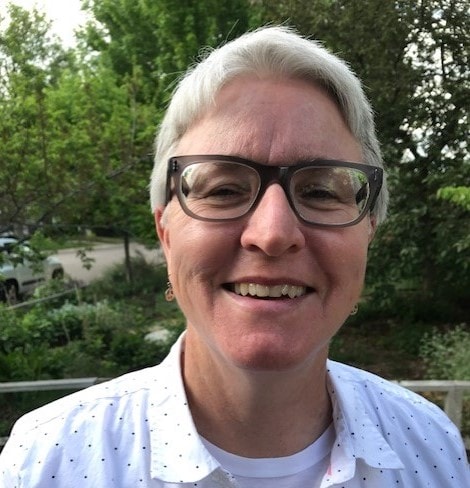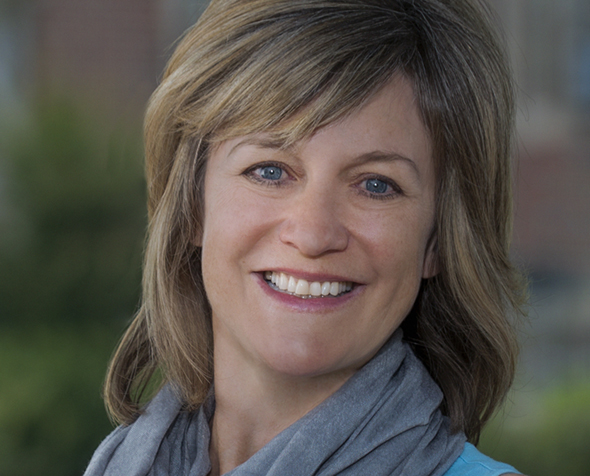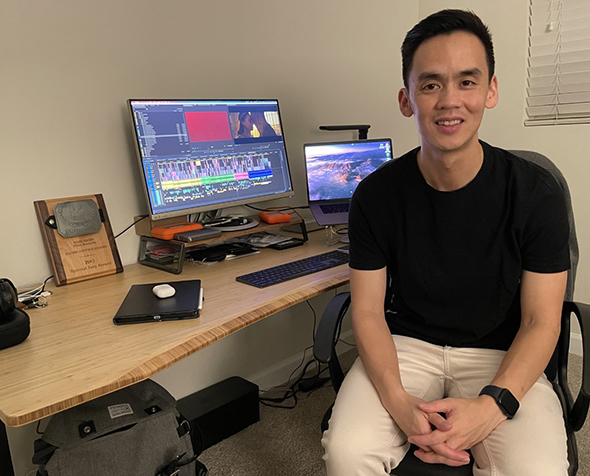Inclusive Innovation: Changing the Face of Film
By Kevin Douglas (BA '20)
This story originally appeared on the Entreneurship@DU blog.
Sheila Schroeder is a professor in DU’s Media, Film & Journalism Studies program. She received her BA in journalism from Valparaiso University, as well as an MA and PhD from Indiana University. As a social issues filmmaker, she's worked as a screenwriter, director, producer, editor and film-set caterer.
In 2015, she founded Project DU F.I.L.M., a program designed to create mentorship opportunities for students while providing hands-on training on-set of professional film productions. DU F.I.L.M. has produced two films while involving over 40 students, 20 alumni mentors and 4,000+ volunteer hours.
What is Project DU F.I.L.M. and how did it come to be?
F.I.L.M. is an acronym for “Film Initiative Linking Mentors.” In a nutshell, we're a mentorship program designed to change the face of filmmaking, a profession that has traditionally marginalize people of color, women and members of the LGBTQIA community. To do that, we mentor students on actual production sets while telling stories about diverse populations. Our first two stories have featured LGBTQIA protagonists who are making their way in the world. These stories normalize the idea of featuring diverse cast members on screen. We also have a focus on bringing a diverse group of students on board to our sets. We have been very fortunate to work with alumni who are professionals in the filmmaking world — along with faculty and community members — who also serve as mentors for our students.
We have completed two films already, and our third was postponed due to COVID — but we are back in the planning stages, and it will be back in production in January. Many of our mentors’ work is picking back up, so January we will bring them back into the fold and pick up production for our next film, "Hunting Season."
What does “innovation” mean to you in the filmmaking space?
People in the industry are asking, “How can we be more inclusive?” One of the innovations we have done is to ensure students are getting actual ground-floor training. Not only are students getting training, but they are getting ground-floor networking. In the film business, as it is in many industries, people hire based on who they know, because they know that person can do the job. So, when you partner mentors with students and they see students can do the job, they are much more likely to hire them. That’s one of the innovations we have embraced within Project DU F.I.L.M.
In regards to COVID-19, it has had the effect of forcing us to step back and think of other ways we can bring students into the process of filmmaking that doesn’t require them being on set for a typical narrative feature. I’ve been working with my colleague, Joe Brown, who's a documentary filmmaker. He recently received a few grants that are going to create opportunities for students to work on smaller documentary sets.
In terms of mentorship, any experience on set is an advantage for students — so expanding Project DU F.I.L.M. beyond the scope of larger narrative sets to smaller documentary sets is another way we have had to step back, evaluate our current model and expand it due to the changing circumstances.
What was a defining moment for you and your passion for inclusivity in film?
Let me take you back to 1997 — that’s when I started at DU. Shortly thereafter, I was lucky enough to be part of an Academy of Arts and Sciences faculty workshop in Los Angeles. There was a cohort of faculty from all over the country, and we were meeting with network executives.
I was in this workshop with a woman named Martha Lauzen from San Diego. Martha was just starting a research agenda around the exclusivity of film and television. Her studies have been groundbreaking in looking at the production of motion pictures and television — both behind the scenes and in front of the camera. Her studies showed how exclusive Hollywood had been (and continues to be). So I met Martha 22 years ago, and we were sitting in these meetings, asking executives, “Why aren’t you being more inclusive?”
I remember the defensiveness and anger from these executives. And I was only just starting out in this space — I wasn’t even wet behind the ears yet, for crying out loud! But here I am, calling out the president of a major television network, and they’re coming back at me with this heat. I’m sitting back in my hotel room like, “What am I doing? Am I burning a bridge here?” But I was speaking my truth, as was Martha.
That moment stuck with me. I’ve spent a lot of time in my career, working on my own films and calling into question this idea of being excluded.
How has this mission manifested itself in your own work?
I made a film called "Proud Alumni." It's a short, experimental documentary based on an incident I had with my alma mater. They were willing to print job announcements, career updates and marriage announcements for their alumni. But they were unwilling to print my same-sex marriage announcement.
It’s moments like that that propelled me to create Project DU F.I.L.M., because I knew what it was like to be that outsider, and I knew if we were going to change the industry at all, it would start with me, and it would start in a small way. I had to ask myself, “What can my contribution be?” And I decided to approach it with a bold vision: to change the face of filmmaking.
I always go back to that moment in front of those executives — feeling the vitriol and defensiveness — and several moments in my own film career that have led me to this place.






